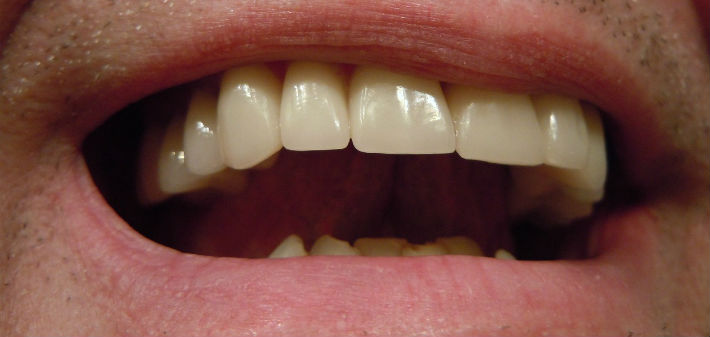If you have a damaged or troubling tooth that needs repair, your restorative options vary from simpler fixes like crowns and fillings to more invasive options like implants or bridges. Learn about the pros and cons of dental crowns to see if this solution is best for you.
Dental crowns are designed to return functionality and appearance to damaged, decayed, or worn teeth. While nothing can replace a set of well cared for natural teeth, well made dental crowns may be the next best thing. Before deciding on a course of action to repair your damaged teeth, it’s important to educate yourself on the pros and cons of dental crowns to understand the advantages over other options like dentures or bridges.
Dental Crowns vs. Other Restorative Options
One of the biggest advantages of crowns, as opposed to bridges or dentures, is that they do not require the removal of healthy or undamaged teeth. When a crown is being used, only the weakened or otherwise damaged areas of the tooth being treated are removed. The crown is molded to fit on top of what is left of the original tooth, making for a less invasive procedure that minimizes the possibility of complications.
Dental crowns are also a permanent solution, one that does not require regular removal or separate cleaning routines to keep your mouth and other teeth healthy. Dentures, however, have to be removed and cleaned regularly to avoid further tooth decay or gum damage.
For all of their advantages, dental crowns are not the perfect solution for everyone. Unlike dentures and bridge work, dental crowns leave your nerve endings in place. This may lead to gum pain or heat and cold sensitivity. There is also a small potential for bacteria to get under the crown and create damage to the tooth underneath. This may cause a need for further dental work.
Types of Dental Crowns
If you do decide to pursue restoration using crowns, your dentist will generally provide you with three options. There are three commonly used types of dental crowns: metal, porcelain and porcelain fused to metal (PFM). While they all serve the same basic purpose of repairing damaged teeth, they differ in lifespan and aesthetics:
- Metal Crowns – These are the longest lasting of the dental crowns but are not considered aesthetically pleasing. They are most often used to repair molars in the back of the mouth where they cannot be seen.
- Porcelain Crowns – These crowns look the most like your natural teeth, but there is a possibility of chipping or wearing over time.
- PFMs – This option is a hybrid of the previous two, consisting of a metal base covered with a porcelain cap to match surrounding teeth. They offer the long lasting advantages of metal crowns, with the more pleasing appearance of porcelain.
Contact your dentist at Arkansas Family Dental for answers to any of your questions about the pros and cons of dental crowns. For personalized advice, schedule a dental consultation to see if dental crowns are right for you or call 501-683-8886 for more information.


Leave a Reply